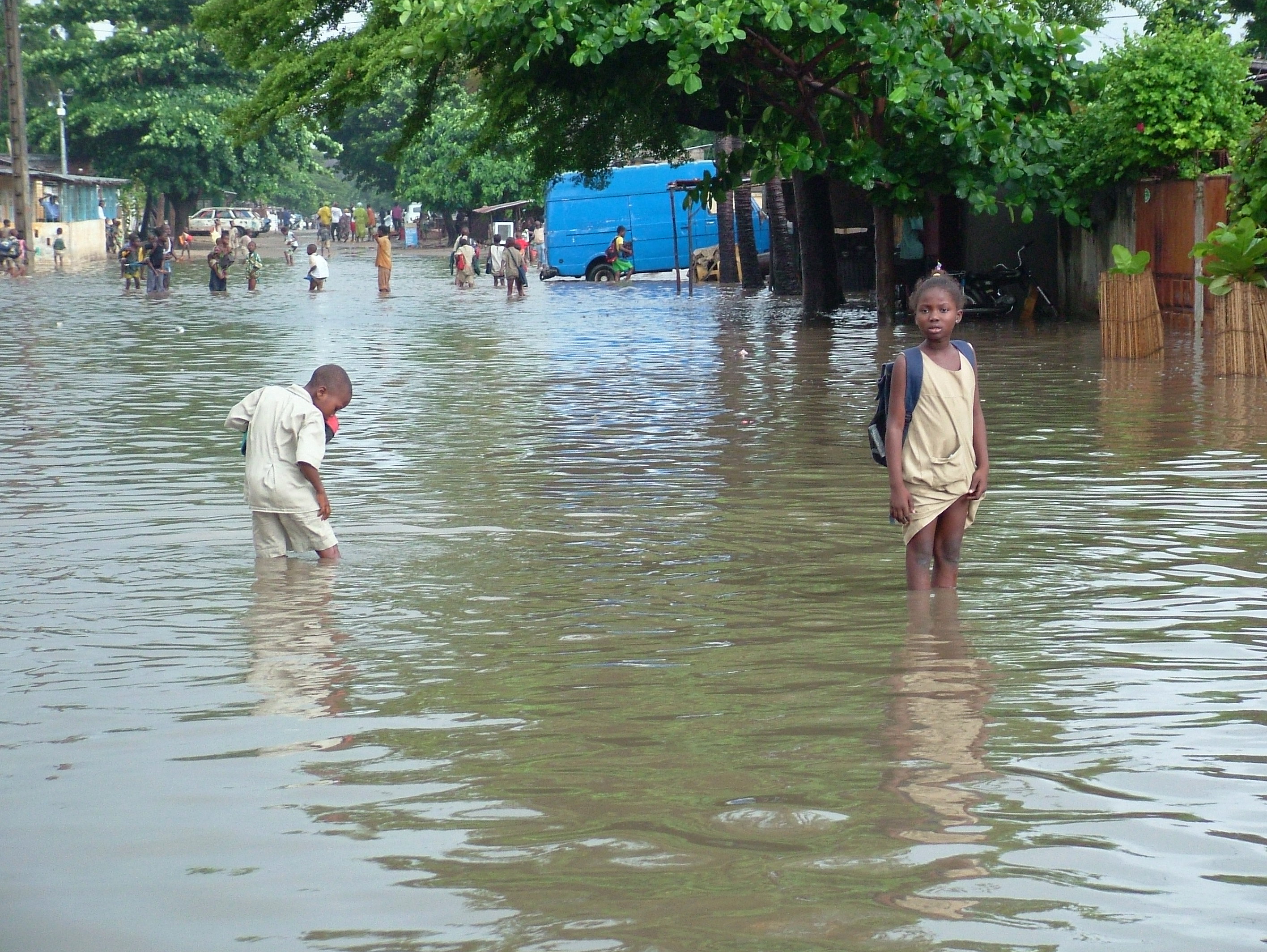“Thousands of people fleeing floodwaters are living with precarious food security, [staying with] family and in public places,” said Interior Minister Armand Zinzindohoué in a public statement on 6 July.
On 7 July the World Health Organization (WHO), Food and Agriculture Organization (FAO), UN Refugee Agency (UNHCR), and UN Children’s Fund (UNICEF) conducted a rapid damage assessment in the economic capital Cotonou, the commune hardest hit by flooding, said Benin’s director of civilian protection, Alfred Sohou.
Of Benin’s 77 communes, 43 were affected, especially those along the southern coastline, according to the government. Interior Minister Zinzindohoué said flood victims need water, food, medicine, mosquito nets, covers and clothing.
In recent years Benin has resisted declaring a state of emergency and appealing for natural disaster aid, Sohou told IRIN. “Beninese national pride pushes them to manage.” But he said that donors indicated this time that “as long as a state of emergency is not declared, they will not come.”
Any estimate of the number of people affected is still unreliable, Sohou said. “We are letting our international partners evaluate the number of flood victims who need assistance because when we ask mayors to do it, they inflate their numbers.” He said mayors tend to send in total population counts rather than the number of flood victims.
“Billions of West African francs [tens of millions of US dollars] are needed to face this situation,” said Sohou. In 2005 Benin spent US$2.1 million over 10 days on flood repairs. This amount multiplied to more than $44 million in 2007, the most recent year for which flood data is available, according to the Ministry of Interior.
In 2007 Benin recorded 144 deaths from flooding, almost 750 wounded, 80,000 displaced and 20,000 hectares of land destroyed, Sohou told IRIN. Flooding is cyclical in Benin, but the rains thus far in 2009 have been particularly severe, he added.
Tentative forecasts have predicted a shorter and more intense rainy season, which started late May and is expected to last until late July, Sohou told IRIN. Last year, the rainy season in Benin lasted until early October.
“The worst of this is that we do not have reliable meteorological information for forecasting, so we do not know exactly what will come tomorrow,” said Sohou.
Benin historically has had strong all-day storms on 14 July. “The risk still exists for more flooding,” said Sohou. “We are waiting to see what happens on the 14th.”
gc/pt/np
This article was produced by IRIN News while it was part of the United Nations Office for the Coordination of Humanitarian Affairs. Please send queries on copyright or liability to the UN. For more information: https://shop.un.org/rights-permissions




